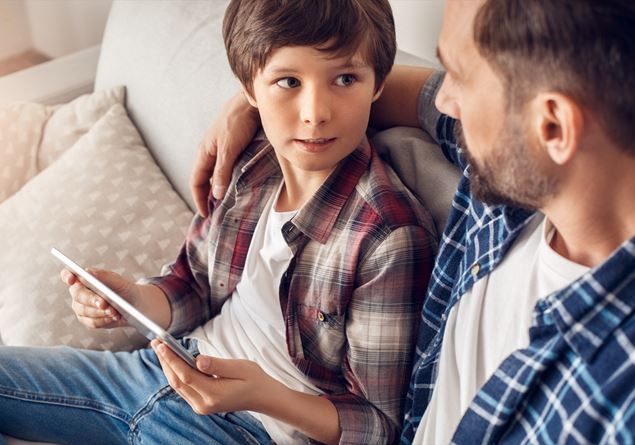The era of digitalisation has brought countless advantages, but with it new challenges and concerns also emerge, especially when it comes to the safety of young people online, so much so that 82% of Italian parents are worried about the online safety of their children. This is what emerges from the research Let’s take back the Internet! promoted by Hearts & Science, communications agency of Omnicom Media Group. The survey involved a thousand Italian parents between 18 and 55 years old with children aged 6 to 17, bringing to light a reality that can no longer be ignored. Some evidence: if 9% of parents prefer to completely avoid using the internet for their children, especially those between 6 and 9 years old, 60% believe their children are too attached to digital devices.
A feeling of insecurity also pervades the adults themselves, with 65% of parents don’t feel comfortable while browsing. It’s not just a question of uncertainty: many parents have already experienced unpleasant or dangerous situations online, such as identity theft, cyberbullying or scams. The negative experience does not spare even those who consider themselves digital experts: “experts” are often the most exposed to risks, with a higher percentage of incidents of online fraud compared to less digitally expert parents. However, it is significant that sOnly 29% of parents have taken adequate protection measures, linked solely to a “technical” aspect, such as the use of antivirus or the creation of secure passwords.
Digital-related pathologies are also a phenomenon that is emerging strongly. 1 in 3 parents have already faced cases of digital addiction or behaviors such as phubbing (ignore real people in favor of the smartphone), cyberchondria (search for disease symptoms online obsessively) and doomscrolling (compulsively scroll through negative news).
According to Hearts & Science, the role of schools in this context becomes increasingly crucial: almost half of Italian parents believe that schools should take an active role in the digital education of children, teaching them how to surf the web safely and consciously. The request does not only concern technical knowledge, but also awareness towards phenomena such as cyberbullying, privacy and protection from harmful content.
Ultimately, the research shows a request for greater awareness, protection and support, both from parents and institutionsto address web-related risks. In response to the need for digital training declared by families, Hearts & Science is therefore concretely committed: in collaboration with the national network of Community Digital Pacts (www.pattidigitali.it) and the University of Milan-Bicocca, and working on in close contact with education professionals on the one hand and communication professionals on the other, will launch a training program in Italy aimed at bridging the knowledge gap that makes the internet risky for young people and adults. This course, in the Hearts & Science project, will be financially supported by donations from the advertising market.
«Digitalization has marked a great era of growth and development in recent years. In light of these data, it is clear that digital has not only done good”, he comments Emanuele Giraldimanaging director of Hearts & Science. «Over the last thirty years, the Internet has truly revolutionized the way we live, but it has also given rise to a business model whose negative externalities – if not treated in time – almost risk nullifying all the benefits. which were brought to the company. We are inhabitants of the digital world and we want to preserve its integrity, also to guarantee future generations more informed access to technologies. The objective is therefore to launch a programmatic manifesto shared with other operators in the sector by Christmas, and start with the provision of the course in partnership with Bicocca University and Patti Digitali on the occasion of World Internet Day, 17 May 2025″.
Second Stefania Garassiniprofessor at the Catholic University of the Sacred Heart and member of the Patti Digitali board, «the research shows a certain mistrust on the part of parents in their ability to really influence the way in which their children use digital. It is on this that it is necessary to intervene, restoring to parents – through adequate training – confidence in their ability to educate even in the digital environment. The real defeat would be to lose hope in the possibility of making the Internet a better place, a place where the safety of minors is truly a priority.”








